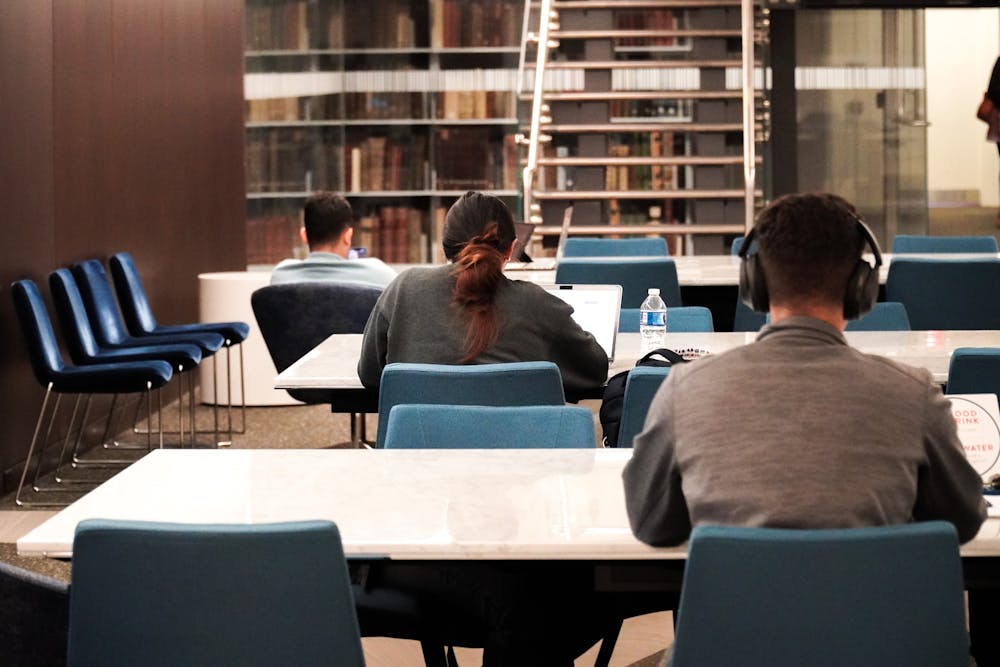Fall 2023 final exam dates were released over five weeks into the semester, prompting students and professors to rearrange classes and travel plans.
Associate Vice Provost for Education and Academic Planning Gary Purpura wrote to The Daily Pennsylvanian that the University takes approximately three weeks to schedule the final exams using the most recent registration data once the course selection period ends. This semester, the course selection period ended on Sept. 12, and the exam schedule was made available on Oct. 6.
The current system reduces the number of conflicting exams. In 2018, there were 281 conflicting exams, and this semester, there were only eight, Purpura wrote. The previous system only scheduled exams during a class’s regular lecture period.
Final examinations for this semester are scheduled from Dec. 14 through Dec. 21. The last day of classes is on Dec. 11, followed by reading days on Dec. 12 and 13.
“Penn schedules on average 860 final exams for fall and spring terms using a process that analyzes registration data to create an optimized exam schedule for a vast universe of classes,” Purpura wrote.
Purpura said that the University's Academic Calendar sets the final exam dates three years in advance.
“We also attempt to schedule as many exams as possible in the first half of the final exam period to minimize the number of students who need to remain on campus for an exam scheduled later in the exam period,” Purpura wrote.
History professor Emma Hart said the late announcement led her to change the structure of her class and final exam, which was scheduled for Dec. 21 — the last day of exams — by the Office of the University Registrar.
Hart received multiple emails from students explaining they could not take the exam since they had already booked tickets home when they were selling at a lower price, and changing their flight wasn’t an option since they could not afford to buy new tickets.
Natives at Penn look ahead to a year of community-building and outreach efforts
Penn professor writes New York Times opinion piece on 'moral deficiencies of a liberal education'
“I can understand that, given the costs involved [buying tickets in advance] is a risk some people would take, and I understand why people would take that risk,” Hart said.
Hart changed her final exam to a take-home essay and an in-person quiz to accommodate students, replacing her last lecture.
Although she had hoped that students would experience writing under exam conditions for the final, Hart said she must now replicate the format of her class’s take-home midterm essay.
“I think students would have benefited more [with an in-class exam]. I could have had a broad range of skills tested in the course,” Hart said.
Associate Professor for Political Science Michele Margolis wrote in a statement to the DP that the University’s final exam schedule being released weeks into the semester “places an unnecessary burden on students, especially low-income and international students.”
The Director of Undergraduate Studies for Political Science, Marc Meredith, echoed Margolis, adding that the University’s method of releasing final exam schedules prevents him from sufficiently planning his course in advance.
“It's very frustrating to have to structure a class and get it planned before the semester without knowing when your final exam would be,” Meredith said.
College first year Angelyn Campillo said that the University’s lack of earlier communication forced her to postpone booking her plane ticket back home for winter break.
“I [had] to wait until super late to tell my family, and it's just very inconvenient," Campillo said.
College junior Alex Guzman and Student Committee on Undergraduate Education representative wrote to the DP that “lack of transparency and flexibility in the academic calendar” was one of the top three issues identified in a survey collecting data on student experiences.
“SCUE is committed to working and communicating with admin that students deserve not only greater transparency of the academic calendar but also a fairer break structure that allows for students to actually rest and relax,” Guzman wrote.









